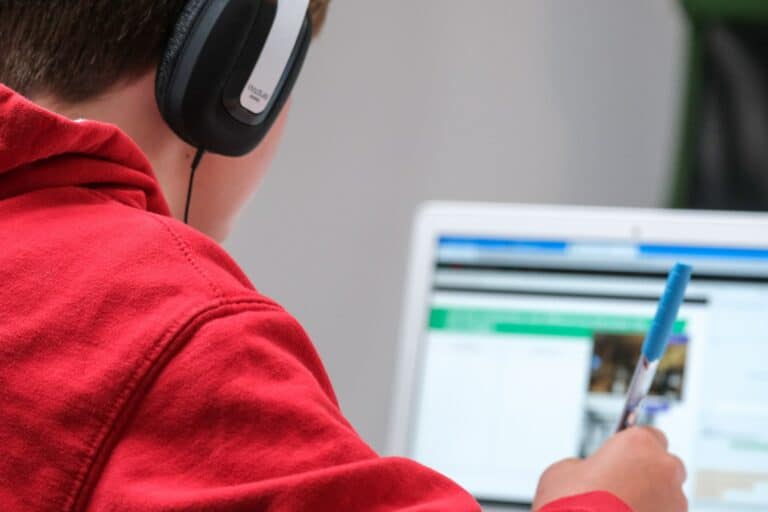Life Skills are special abilities that can be learned through natural experience or from the experiences of others. These abilities enable an individual to handle everyday challenges in their lives, more efficiently.
The world is changing and will become more complex and skill driven in the coming years! Hence, the next generation also needs to acquire these 21st-century skills before they enter the challenging phase of their life.
21st Century Life Skills That Schools Should Teach Students

In This Article
1. Information Literacy
In our fast-paced digital world, we are surrounded by numerous local information sources. While it is easy to find information, segregating the credible ones is a difficult task in itself. As a skill, information literacy empowers an individual to locate and make use of the right information. This 21st-century skill also helps an individual to understand and make use of the right information. Because the sources of information and their contexts can make a lot of difference while interpreting their exact meaning at any point in time.
With more and more use of educational technology, this skill of the future is imperative for students to make use of new technologies. It helps them to be more self-directed, and they find more opportunities to research complex topics. With the growing trend of online education, information literacy is as important as functional or numeric literacy. Because in the years to come, there will be more emphasis on individualized and lifelong learning through the support of online education.
2. Collaboration
As per research, collaboration is a trend that shifts individual learning to group work. As an educational approach, it makes individuals respectful of the abilities of others. And they discover diverse beliefs while conversing with their peers. Teamwork or collaboration is the ability to perform in a heterogeneous group.
A collaborative individual maximizes the team’s performance. Hence, good schools focus on cultivating this 21st-century skill in students. Intentional instruction in a class helps students to work in groups. It makes the students good listeners. And they learn to appreciate the viewpoints of others while being effective collaborators.
The 21st-century workforce also needs individuals who can step out of their comfort zones. And collaborative individuals easily acquire new skills and understand the ways of using these in real-life scenarios.
3. Time Management
Time management is another life skill that schools must aim to teach students before they step into the real world. This quality makes task accomplishment easy. And saves a lot of productive time for more important work.
“Time management is about life management”
– Quoted by Idowu Koyenikan.
In a student’s everyday life, time management helps in achieving both the long and short term goals. It allows them to prioritize work and leisure. And makes room for all that matters to them.
Today, online schooling has taken learning beyond the physical boundaries of a traditional school. And online schools have successfully made way for interests over and above the regular school education. Students with good time management skills can tackle their work and manage deadlines. This gives them a sense of accomplishment. And makes them more confident about staying organized each day.
Another reason why time management is essential is to stay away from stress. Stress management is difficult, and because many of us are living in stressful situations, we can effectively meet our goals by managing our time well. And later, this desirable skill for employment also becomes an asset for an individual in the workforce.

4. Communication
One cannot deny the importance of communication as a 21st-century skill!
It makes an individual a valuable member of a team/group. And minimizes confusion due to ambiguity in conveying ideas/thoughts. Each business requires effective communicators. And for this reason, communication is rightly labeled as a skill imperative in the 21st-century world.
Without good communication skills, one cannot excel in life! Although verbal communication is most crucial, having good nonverbal and written communication skills is also vital.
These skills help an individual to capture the attention of the listener. And these are also important to collaborate, as effective communicators are good at making transparent interactions. Communication skills are directly related to one’s confidence level as well. Because those who know how to communicate effectively are likely to grab the attention of others. For public speaking, relationships, or delegating duties, communication skills play a vital role. And this quality can also be life-changing while exploring the best opportunities in adulthood.
UNESCO highlights the importance of social and emotional learning for students in the 21st-century. With the growing number of mental health problems, our younger generations are forced to live under pressure. These skills are not just helpful in supporting the academic success of students. But also help them to lead a contented life that can be valued and cherished.
SEL findings prove that positive experiences can improve one’s social and emotional well-being. And these insights are used by academicians while designing the curriculum of the top schools in the world.
As per EducationWeek, social and emotional learning is much more than just a ‘BUZZ WORD’ of the century. It makes our students independent from a young age. And empowers them to survive through the struggling phases of learning.
6. Self-Awareness
We keep hearing about self-awareness every now and then but fail to comprehend its implications for an individual in the real sense. Self-awareness is a learnable 21st-century skill that holds importance in our lives as it makes us capable of learning from our mistakes. More importantly, this skill allows us to take responsibility for our actions. Hence, it is the basis of a growth mindset. Self-awareness makes our brain capable of processing and correcting the mistakes made by us.
A self-aware individual never looks for others to pass blame. Hence, it is a skill of a lifetime that supports our professional and personal growth.
Hope we could highlight the importance of life skills that are critical for success in the 21st -century!











